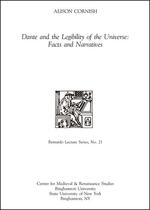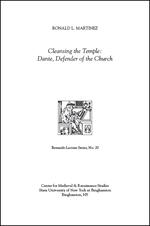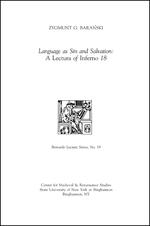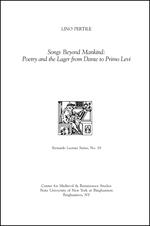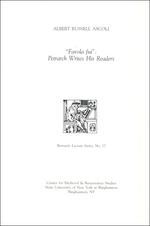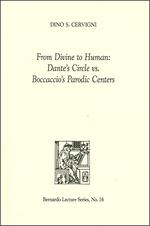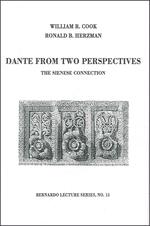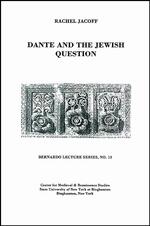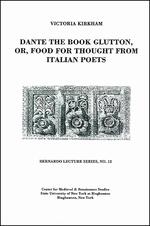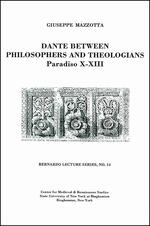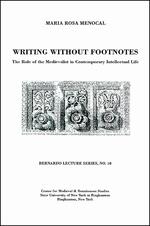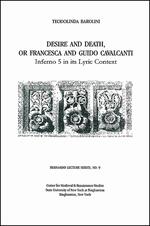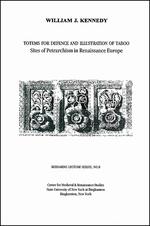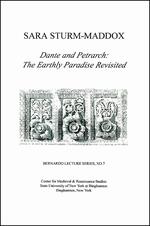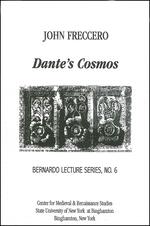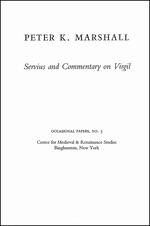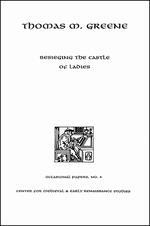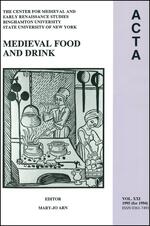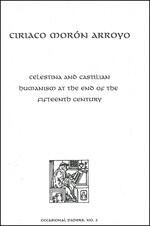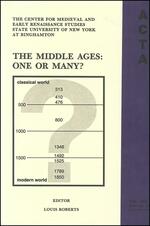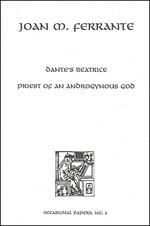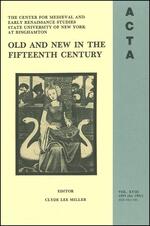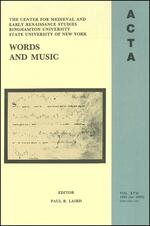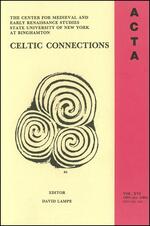Center for Medieval and Renaissance Studies
Dante and the Legibility of the Universe: Facts and Narratives
Argues that the Divine Comedy dramatizes the risks and rewards of competing narratives, or different ways of reading.
Cleansing the Temple: Dante, Defender of the Church
Dante as protector and purifier of the Church.
Language as Sin and Salvation: A Lectura of Inferno 18
Describes several key roles of Canto 18 in the structure of the Commedia.
Songs Beyond Mankind: Poetry and the Lager from Dante to Primo Levi
Examines the preservation of the integrity of humanity through literature in the hells described by Dante in his Inferno and by Primo Levi in Survival in Auschwitz.
"Favola fui": Petrarch Writes His Readers
Examines the interplay between reading and writing in the works of Petrarch and Dante.
Dante and Paul's "Five Words with Understanding"
Argues there is a program of five-word utterances that imitate fallen language in Dante’s Commedia.
From Divine to Human: Dante's Circle vs. Boccaccio's Parodic Centers
In Boccacio's Decameron, Cervigni sees a parodic echo of the circles of Dante's Divine Comedy, and asks whether Bocaccio envisions the voyage of the brigata as similar to Dante the Pilgrim's journey toward the center, first the abysmal center of Lucifer, then towards the highest center, God.
Dante from Two Perspectives: The Sienese Connection
Addresses the implications of a document found in the Archivio di Stato di Siena which affirms a connection between Farinata degli Uberti, a Florentine conspicuously encountered by Dante the pilgrim in Inferno 10, and the Sienese Ghibellines with whom he and his fellow Florentine Ghibellines joined, in an alliance which produced the Sienese victory at the battle of Montaperti in 1260.
Dante and the Jewish Question
Addresses Jacoff’s own discomfort with Dante’s reiteration of the deicide charge against the Jews in Paradiso 7 and elsewhere.
Dante the Book Glutton, or, Food for Thought from Italian Poets
Explores Dante’s love of books.
Dante Between Philosophers and Theologians: Paradiso X - XIII
Raises the radical question of how Dante’s understanding of poetry shaped his theology, his ethics, and, more generally his sense of the organization of knowledge or encyclopedia.
Writing Without Footnotes: The Role of the Medievalist in Contemporary Intellectual Life
Argues that academics’ intellectual engagement with a public beyond the walls of their own specialties, and even beyond the walls of the academy, was long a commonplace and significant part of the work of professors and writers in the humanities.
Desire and Death, or Francesca and Guido Cavalcanti: Inferno 5 in Its Lyric Context
Explores the lyric context of Inferno 5.
Totems for Defence and Illustration of Taboo: Sites of Petrarchism in Renaissance Europe
Argues that critical comments appended to early printed editions of Petrarch’s Rime sparse inflected the reception and understanding of Petrarch’s vernacular poetry in Renaissance Europe.
Dante and Petrarch: The Earthly Paradise Revisited
Explores the nature and significance of Petrarch’s indebtedness to Dante in the Rime sparse.
Dante's Cosmos
Freccero argues that the Paradiso may be considered a medieval version of science fiction.
Servius and Commentary on Virgil
Traces the importance and influence, in the wake of Tiberius Claudius Donatus, of Servius' Commentaries in the Middle Ages and Renaissance, especially on the magisri, the grammatici, and the mythographers.
Besieging the Castle of Ladies
Traces the mysterious motif of the castle defined by women across several centuries, regions, and cultural expressions.
Celestina and Castilian Humanism at the End of the Fifteenth Century
Argues that the Comedia de Calisto y Melibea is a drama grounded in the western humanist tradition.
Dante's Beatrice: Priest of an Androgynous God
Examines Dante’s character of Beatrice and contends that, more than simply leading Dante to God, Beatrice allows him to see a feminine side in God, humanity, and himself.
